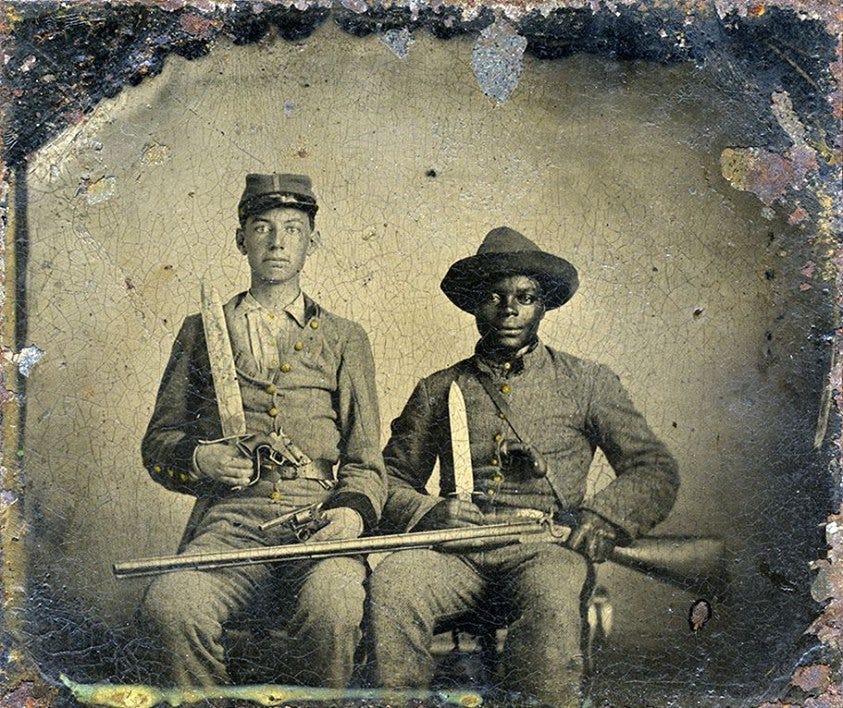I am often asked this when I respond to an individual online who is pushing the Black Confederate myth. It has come up a couple times over the past few weeks owing to my responses to an individual on twitter, who has been reading and offering commentary about my book, Searching for Black Confederates: The Civil War’s Most Persistent Myth.
When our paths first crossed I offered to respond to this individual’s questions. Unfortunately, that didn’t happen. Instead, he has chosen to make assumptions about my motivations for writing the book, but more problematic are his comments in response to primary sources that he believes somehow undercut the central claims in my book.
Here are two examples of how I’ve responded to this particular individual from earlier today.




Each of these tweets is followed by a lengthy thread that unpacks the content of Mr. Sapp’s posts. [Please do not go to his twitter page and insult him. That is not the goal here.]
Let me be clear that I have no problem with criticism. I don’t even mind the personal slights that have been made by Mr. Sapp over the past few weeks. I’ve been engaging with people online since 2005 and believe me when I say that I have experienced much worse.
With that said, I believe that as a historian and educator I have a responsibility to respond to online posts on this subject whenever it is possible and reasonable to do so. It’s a topic that I have spent a good deal thinking and writing about and it connects to a much broader public conversation about how we think about the history and legacy of slavery in the United States that I care deeply about.
This may come as a surprise to some of you, but I am not interested in the author’s motivation. In my experience, the vast majority of people who fall victim to this narrative are not ideologues or Lost Causers. Most simply fall short in their ability to interpret primary sources. That’s nothing to be ashamed of. It’s a skill that takes time to develop. I am still learning.
Regardless of whether the author is persuaded by my prodding, it is my hope that people who are sincerely interested in the subject will be aided by some of these exercises: the importance of thinking carefully about the questions we pose interpret primary sources; the importance of identifying the particular source in question; the importance of historical context, to name just a few.
I’ll continue do what I can to help others and promote sound historical thinking in my admittedly very small corner of the social media universe.
Our understanding of the past and the insights that we are able to glean from it ultimately depend on the curiosity and skill that we bring to the table.
I hope this answered your question.





“Never give in. Never give in. Never, never, never, never--in nothing, great or small, large or petty--never give in, except to convictions of honour and good sense.” Prime Minister Winston Churchill's address to Harrow School on October 29, 1941
http://www.eng.uwaterloo.ca/~jcslee/poetry/churchill_nevergivein.html
Glad to find you here!
Silence merely allows false narrative to flourish. Your appraoch, however, which stays factual and never descends to insults or mind reading/casting aspersions on motivation, seems likeliest to get good results.